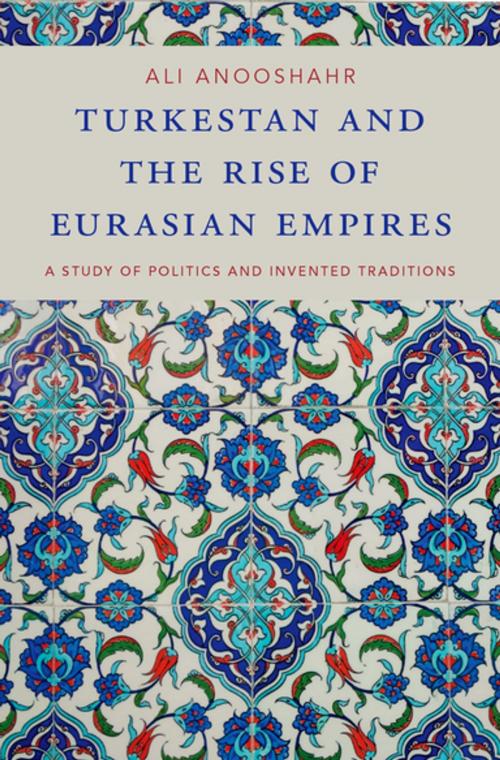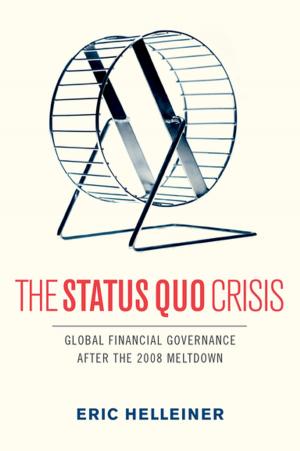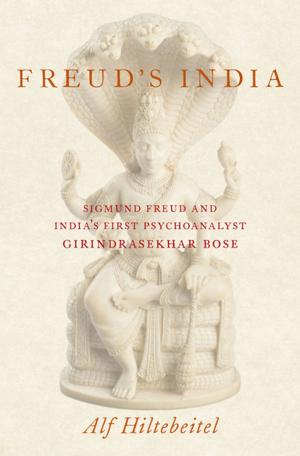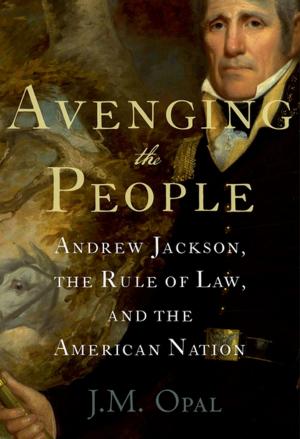Turkestan and the Rise of Eurasian Empires
A Study of Politics and Invented Traditions
Nonfiction, History, Medieval, Middle East| Author: | Ali Anooshahr | ISBN: | 9780190693589 |
| Publisher: | Oxford University Press | Publication: | April 2, 2018 |
| Imprint: | Oxford University Press | Language: | English |
| Author: | Ali Anooshahr |
| ISBN: | 9780190693589 |
| Publisher: | Oxford University Press |
| Publication: | April 2, 2018 |
| Imprint: | Oxford University Press |
| Language: | English |
It has long been known that the origins of the early modern dynasties of the Ottomans, Safavids, Mughals, Mongols, and Shibanids in the sixteenth century go back to "Turco-Mongol" or "Turcophone" war bands. However, too often has this connection been taken at face value, usually along the lines of ethno-linguistic continuity. Turkestan and the Rise of Eurasian Empires argues that the connection between a mythologized "Turkestani" or "Turco-Mongol" origin and these dynasties was not simply and objectively present as fact. Rather, much creative energy was unleashed by courtiers and leaders from Bosnia to Bihar (with Bukhara and Badakhshan along the way) in order to manipulate and invent the ancestry of the founders of these dynasties. Through constructed genealogies, nascent empires founded on disorganized military and political events were reduced to clear and stable categories. With proper family trees in place and their power legitimized, leaders became far removed from their true identities as bands of armed men and transformed into warrior kings. This created a longstanding pattern of false histories created by the intellectuals of the day. Essentially, one can even say that Turco-Mongol progenitors did not beget the Ottoman, Safavid, Mughal, Mongol, and Shibanid states. Quite the contrary, one can instead say that historians writing in these empires were the ancestors of the "Turco-Mongol" lineage of their founders. Using one or more specimens of Persian historiography, in a series of five case studies, each focusing on one of these early polities, Ali Anooshahr shows how "Turkestan", "Central Asia", or "Turco-Mongol" functioned as literary tropes in the political discourse of the time.
It has long been known that the origins of the early modern dynasties of the Ottomans, Safavids, Mughals, Mongols, and Shibanids in the sixteenth century go back to "Turco-Mongol" or "Turcophone" war bands. However, too often has this connection been taken at face value, usually along the lines of ethno-linguistic continuity. Turkestan and the Rise of Eurasian Empires argues that the connection between a mythologized "Turkestani" or "Turco-Mongol" origin and these dynasties was not simply and objectively present as fact. Rather, much creative energy was unleashed by courtiers and leaders from Bosnia to Bihar (with Bukhara and Badakhshan along the way) in order to manipulate and invent the ancestry of the founders of these dynasties. Through constructed genealogies, nascent empires founded on disorganized military and political events were reduced to clear and stable categories. With proper family trees in place and their power legitimized, leaders became far removed from their true identities as bands of armed men and transformed into warrior kings. This created a longstanding pattern of false histories created by the intellectuals of the day. Essentially, one can even say that Turco-Mongol progenitors did not beget the Ottoman, Safavid, Mughal, Mongol, and Shibanid states. Quite the contrary, one can instead say that historians writing in these empires were the ancestors of the "Turco-Mongol" lineage of their founders. Using one or more specimens of Persian historiography, in a series of five case studies, each focusing on one of these early polities, Ali Anooshahr shows how "Turkestan", "Central Asia", or "Turco-Mongol" functioned as literary tropes in the political discourse of the time.















